Hidden culture: a trip through Jerusalem
Behind the headlines and conflict lies one of the world’s most culturally nourishing cities
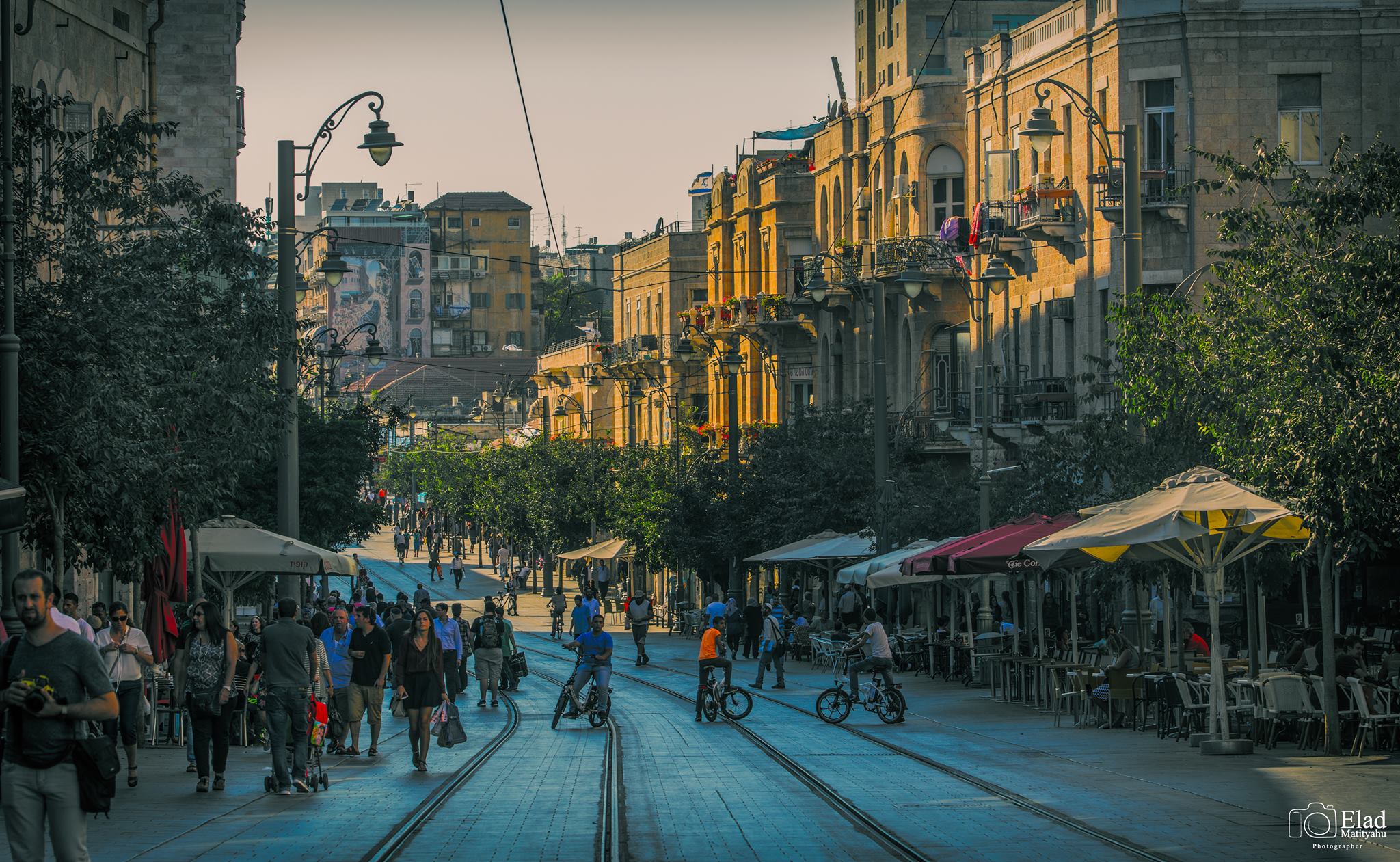
A free daily email with the biggest news stories of the day – and the best features from TheWeek.com
You are now subscribed
Your newsletter sign-up was successful
Everyone shops at the Machane Yehuda food market. By day, chefs from Jerusalem’s best restaurants scout the 250 stalls looking for the perfect ingredients, jockeying with tourists who come here to smell, touch and buy, amid this tempting kaleidoscope of abundant, fresh produce. Almost everything here is made or grown locally. By night, a wild, after-dark scene arises from the market alleys, as stalls turn into small bars and musicians play live rock and jazz for party-goers.
I wander the lanes and inhale the aromas of more than 100 freshly ground spices from the Pereg spice shop and scoop up the epicurean temptations of soft, round pats of goat’s cheese, dried strawberries, homemade granola and caramelised coconut soaked in date honey. Behind every counter and stand I find a special story, thanks to the cultural and religious mix of its inhabitants.
Besides a deep connection to the city and its history, the market - unpretentious and bustling with local trade - is a place of work and the main inspiration behind chef Tali Friedman’s The Atelier. Having trained at The Lenotre School in Paris and worked with the best chefs in Israel, her culinary tour and cooking class experience celebrates the homely flavours of her grandmother’s kitchen.
The Week
Escape your echo chamber. Get the facts behind the news, plus analysis from multiple perspectives.

Sign up for The Week's Free Newsletters
From our morning news briefing to a weekly Good News Newsletter, get the best of The Week delivered directly to your inbox.
From our morning news briefing to a weekly Good News Newsletter, get the best of The Week delivered directly to your inbox.
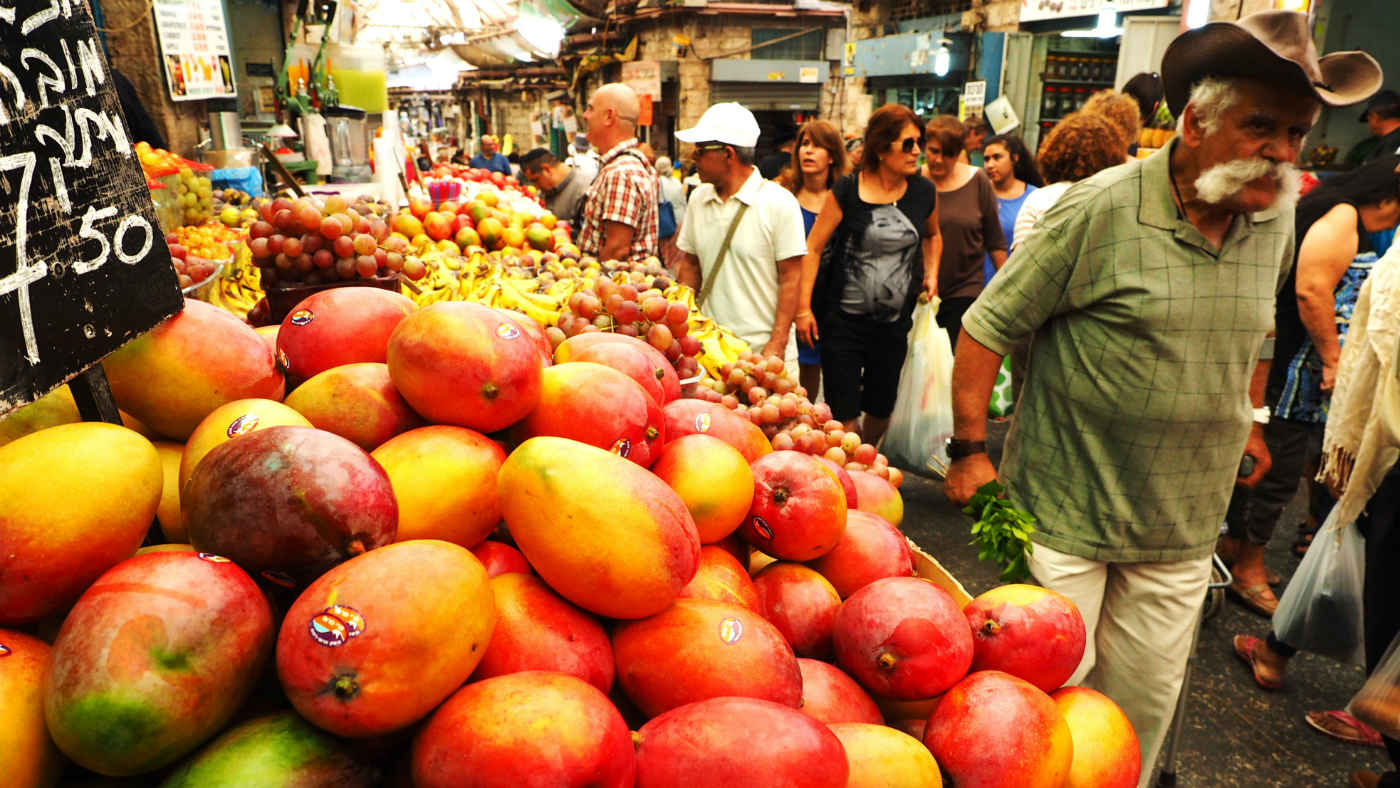
“Open your eyes, open your senses and see the beauty of what’s happening here,” says chef Yossi, our guide (and Tali’s brother). “We’re going to taste and eat all the best things in the market. When I hand you food, no manners please!”
Arabs and Jews are working hand in hand here, their food cultures continuing to mix. “In the past year, Jerusalem has gone through amazing change,” says Yossi. “The market is manned by more than half of Arabs. Ultimate coexistence and living together is a key component that has resulted in a diverse and bustling food mecca and tourist experience.”
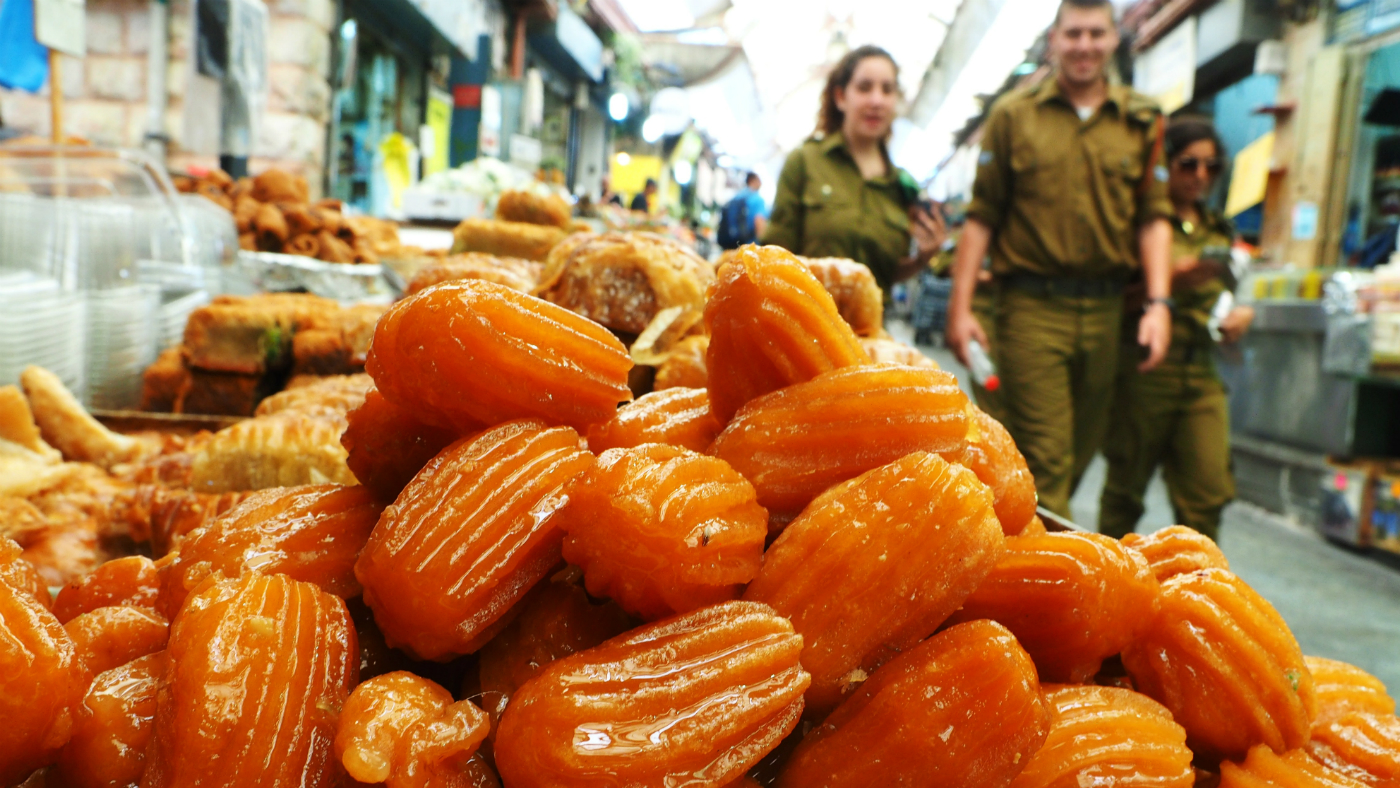
I close my eyes, listen and hear Arabic all around me. Yossi continues: “They are like a big family here. The real purpose of what we are trying to do is not the food, it’s not the market, it’s taking all the cultures together and communicating. Taking each other’s wisdom and mixing it to create magic. Everyone is speaking their own truth. The market is not a religious destination, it’s a foodie destination.”
I learn that only two people in the whole of Israel can make burekas with the thin, flaky, crispy dough. “One of them is based over there,” says Yossi, pointing. He disappears in that direction and minutes later appears with a tray laden with the legendary hot, savoury, stuffed pastries filled with salted cheese, spinach, roasted eggplant, meat and potatoes. Passing tourists stop and watch our appreciative reactions and soon follow suit.
A free daily email with the biggest news stories of the day – and the best features from TheWeek.com
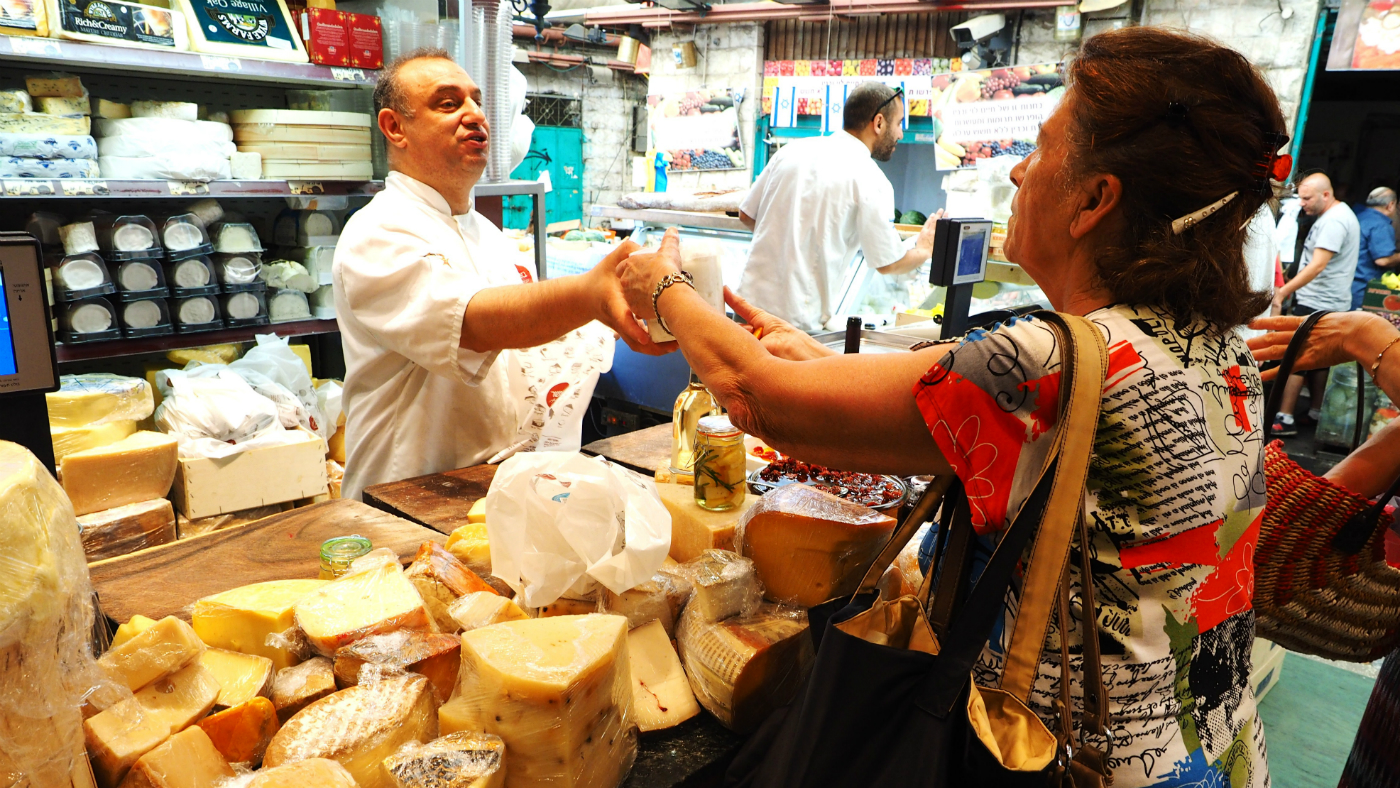
Ten minutes later we are at The Halva Kingdom sampling their sweet sesame treats, then olives in Tzidkiyahu, eating hummus at Rachmo, then on to Basher Fromagerie for cheese and Israeli wine. Opened 20 years ago and ranked fifth in the world, it is owned by two brothers and third-generation restauranteurs Eli and Dudu Basher, who produce close to 1,200 cheeses and distribute them across Europe. Eli regularly travels to Paris for Rungis, the world’s largest fresh produce market, to keep their empire filled with complex varieties.
Laden with ingredients and samples from the market, we return to The Atelier’s modern cooking studio, tucked away above the market lanes. Accompanied by free flowing wine from the Golan Heights Winery and music, we jointly cook a gourmet meal, served alfresco on the roof, overlooking the market and city. Think fresh sea bass ceviche followed by hot banana festooned with saffron honey and white wine.
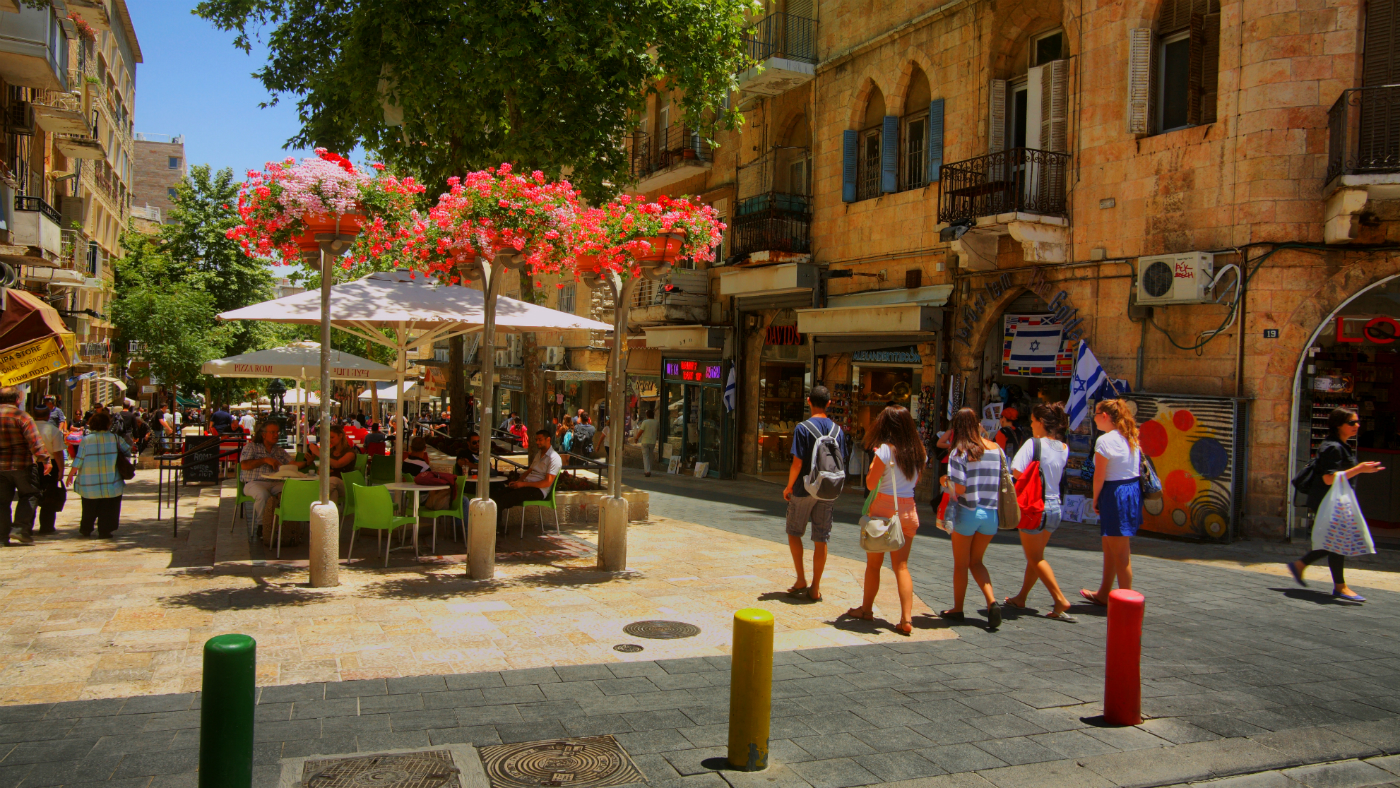
It’s been a languorous cat-stretch of a day, much-needed after an intense week of pounding Jerusalem’s well-worn pavements. This bustling city of living history is experiencing a tourism boom. Some 3.6 million tourists visited Israel in 2017 (up nearly 25% on 2016).
Part of the reason is the number of new openings, including boutique hotels (Vill Brown), luxury spas (The Mamilla Hotel), shopping haunts (Mamilla Mall), culinary experiences (The Rooftop Wine & Cheese Restaurant), cool cocktails bars (Circa) and thriving craft breweries (Biratenu), which balances out the sobriety of the city’sholy places.

Take a beer at Biratenu and you’re likely to meet Shmuel, the owner, who will fill you in on the growing craft beer scene and serve you bottle after bottle of local varieties. “We teach people how to brew beer. There are now 100 home brewers in Jerusalem. Everyone knows everyone - we have each other on speed dial. Some of our old customers have started up their own craft beer production line. One of them created the cider that you’re currently drinking.”
There’s a routine to any first day in a new city. Put on your comfy shoes and wander. You cannot help but feel the history beneath your feet here. Head to the new information trucks stationed near the Jaffa Gate and the Machane Yehuda Market, where visitors can stop for a drink and information on tourist attractions, art, cultural events, the culinary scene and historical sites. The trucks have free Wi-Fi and recharging spots for mobile devices.
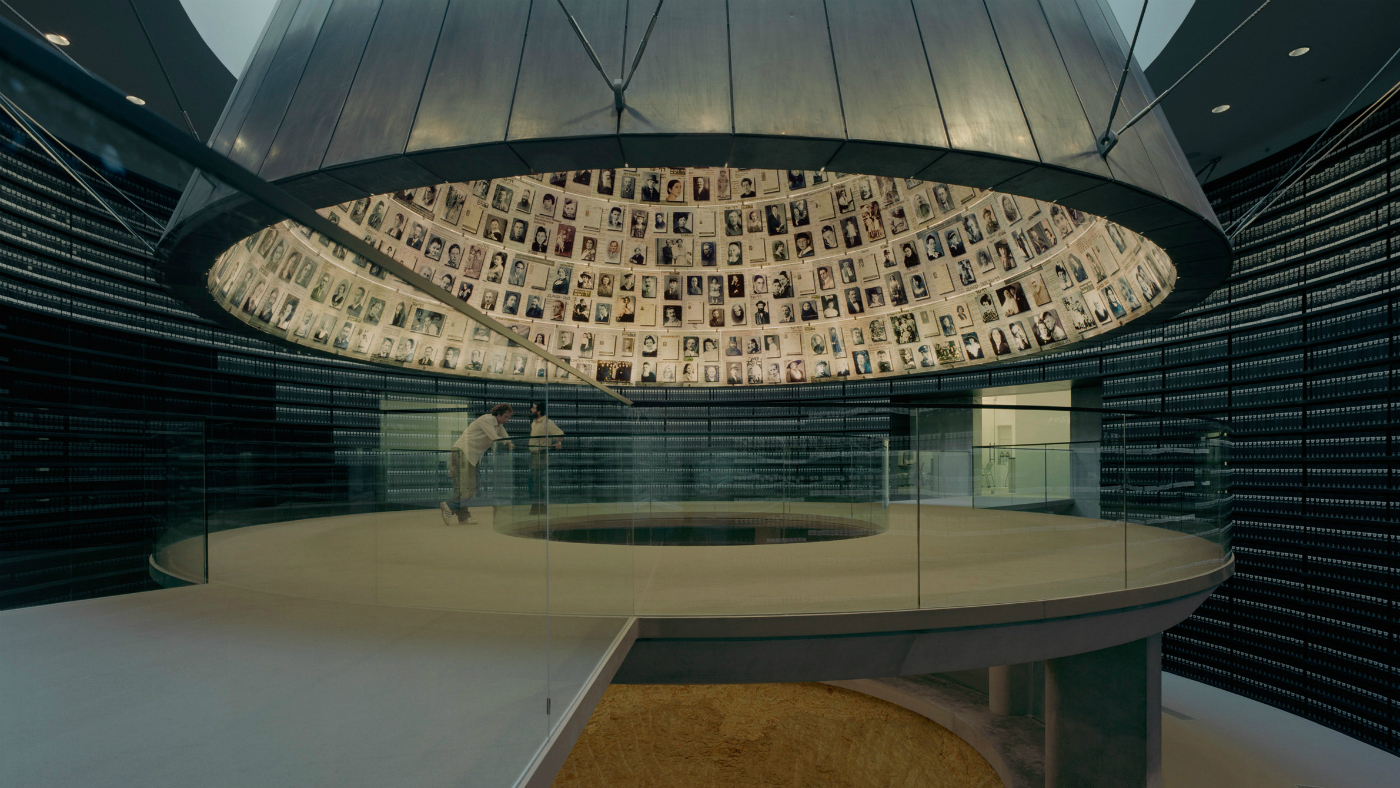
There, I decided to give a Segway a go for the very first time and signed up with ZuZu Segway for a fun two-hour tour of neighbourhoods including Mishkenot Sha’ananim and Yamin Mosche. (Book tour guide Shelly Eshkoli to take you on foot to Mea Shearim, an ultra-Orthodox community, for tea and discussion with Naomi Miller, a local member). Another strand of the story of Jerusalem is told at the Friends of Zion Museum - a visual and emotional experience illustrating local history through technology and touchscreens.
For evening entertainment, take a blanket and a cheeky hip flask and sit amid the archaeological remains in the Citadel’s shadowy courtyard for The Night Spectacular Sound & Light Show. Booming original orchestral music resonates around its walls, as stimulating virtual reality graphics showcase the city passing between empires and kingdoms. Jerusalem’s 4,000 year-old history came alive right in front of my eyes.
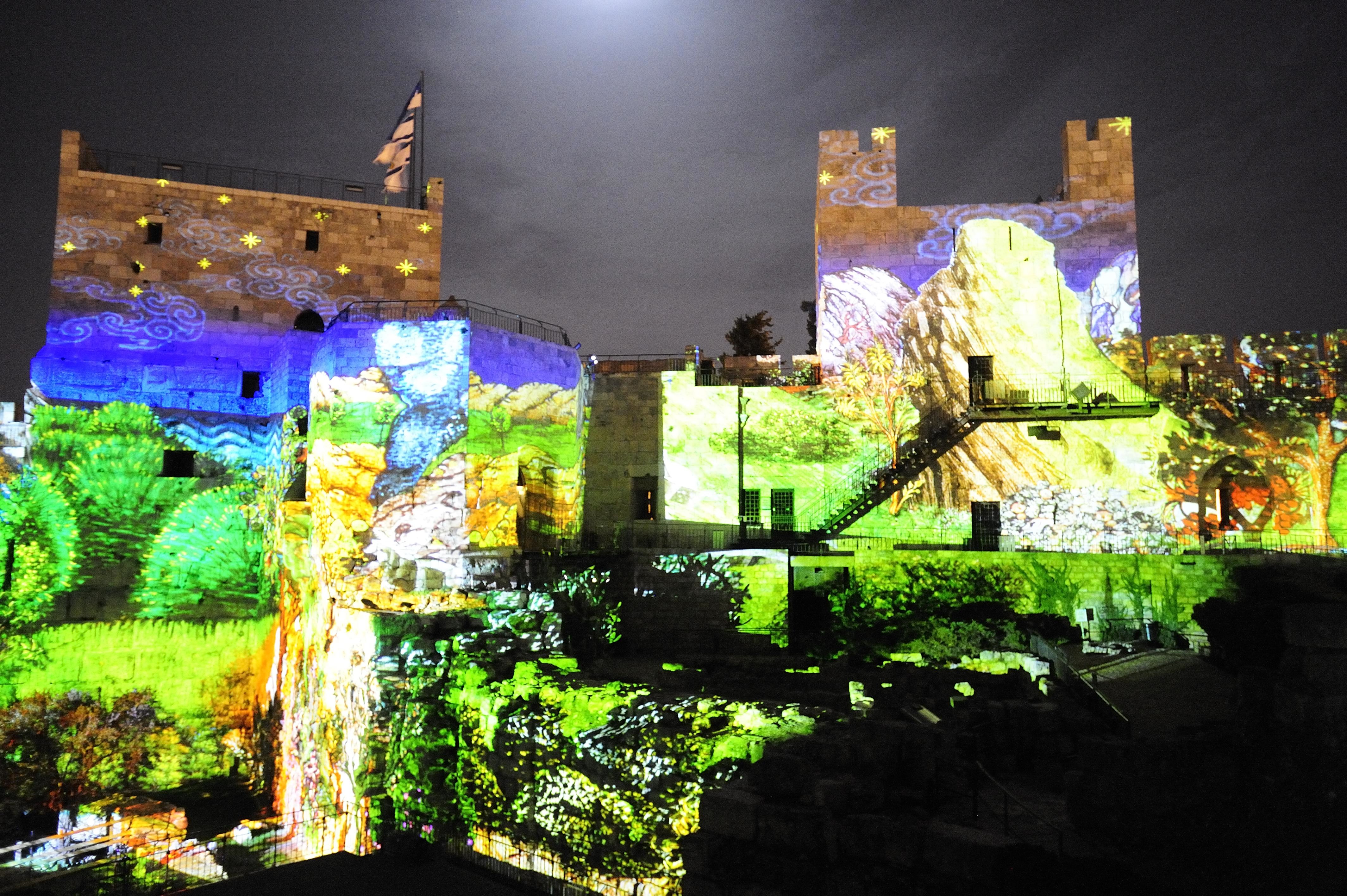
On another day, potter the arts and crafts cobbles of Hutzot Hayotzer for gorgeous tapestries, prayer shawls and artisan jewellery, before braving the bustling spider web of narrow market streets lined with bric-a-brac shops of manufactured pottery, lanterns and colourful pashminas, finally arriving at The Church of the Holy Sepulchre. Originally built in 330 AD, it commemorates the site of Christ’s crucifixion and burial, surrounding it with glorious gold, marble, swirling architecture and hundreds of soft candles. Expect to queue for an hour for the Edicule – on the site of what is believed to be Christ’s tomb.
Step back out into daylight and follow the throng to the Western Wall. Having survived since the days of King Herod, it’s been the holiest place for Judaism for two millennia. Each year more than a million notes and prayers are placed in the wall’s crevices on pieces of paper. Even if you’re a non-believer, the spiritual atmosphere envelops you, compelling you to take a moment to write a few words too.
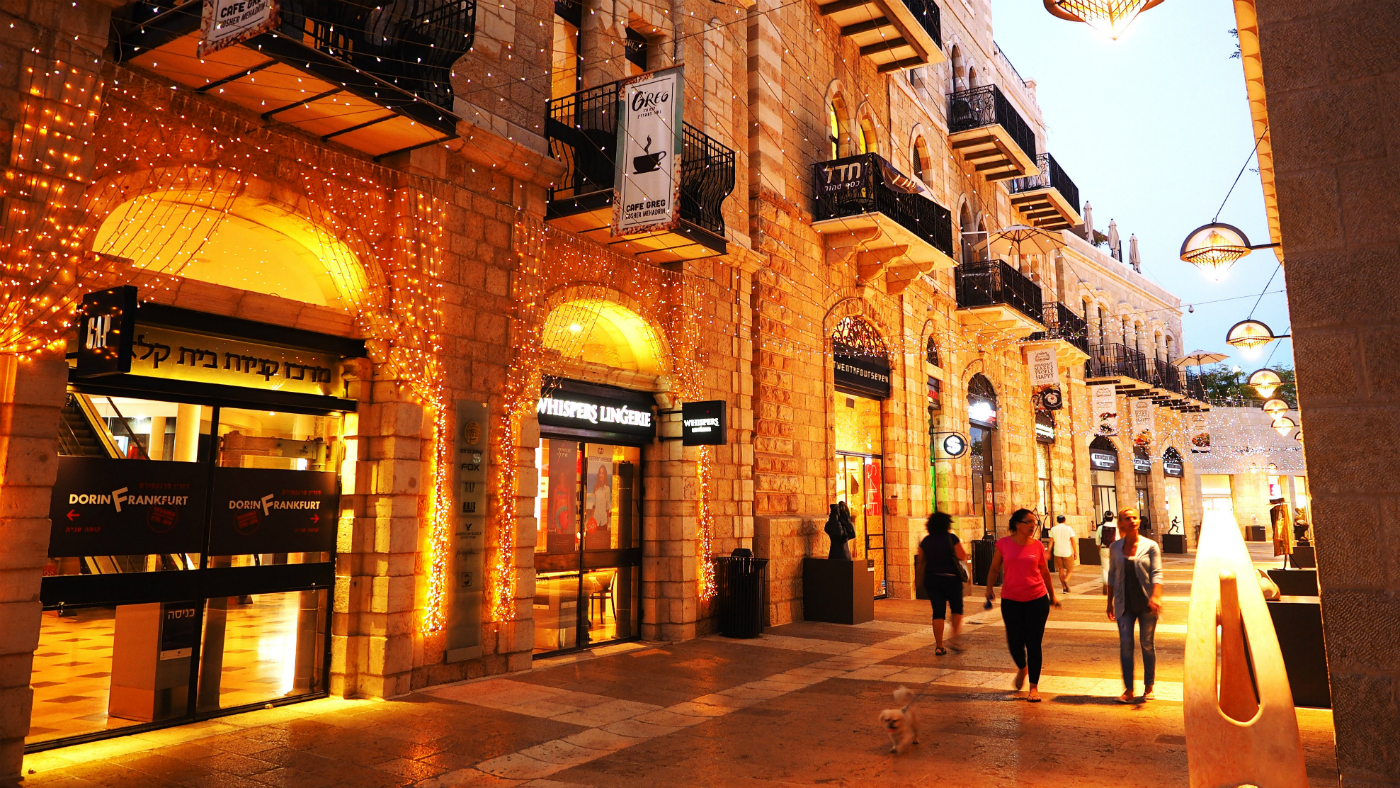
To escape the heat, descend into the City of David Tunnels Tour and pass through the mysterious underground passages through which the city was conquered and residents fled. I walked through the water of Hezekiah’s Tunnel, where water has flowed since the time of the prophets. At points along the way the water was thigh-high, and I ended up face-planting and drowning my phone. Tip: a bowl of dried rice really does work.
Jerusalem has been conquered more than 40 times, and each changing of the guard has left another layer of history. Every day brings another discovery. “We have at least four active digs going on these days,” says James Elgrod, my guide from the VIP department at the City of David in Jerusalem. “Just recently we uncovered Roman pillars and roof tiles along with a rare silver coin from the 4th century BC.” Born in London, he came here with his family at the age of two. “My mother was English and I was brought up on Monty Python, hence my odd British accent,” he says. Book him for his passionate and entertaining storytelling of the latest excavations taking place in the city.

If you fancy a little quiet reflection, take a taxi or light rail to the outskirts of the city for the lush village hills of Ein Karem. Christian tradition names it as the birthplace of John the Baptist.
I stroll past the magnificent churches and monasteries, a bubbling spring, wonderful orchards, old-world homes and charming alleys filled with art studios and cafes, before taking lunch at Karma restaurant, which sits on a pretty hilltop. For a grand view over the Old City climb up to the Mount of Olives, the Ramparts Walk or the Mamilla Hotel’s rooftop terrace, below which church domes, mosques and synagogues punctuate the contemporary cityscape.
Jerusalem is practically synonymous with archaeology, holiness and a cradle in which everything begins - but it also embraces the future. Complex and sensitive: that’s how they dance here.
Wizz Air operates daily flights from Luton to Tel Aviv, with fares starting from £74.99 (One way including all taxes and non-optional charges). Flights can be booked at wizzair.com.
The Week Portfolio stayed at Villa Brown, a hotel housed in an impressive 19th-century villa which has been painstakingly restored to its former glory. Rates start from £190 per night, to book visit: brownhotels.com/villa/the-villa
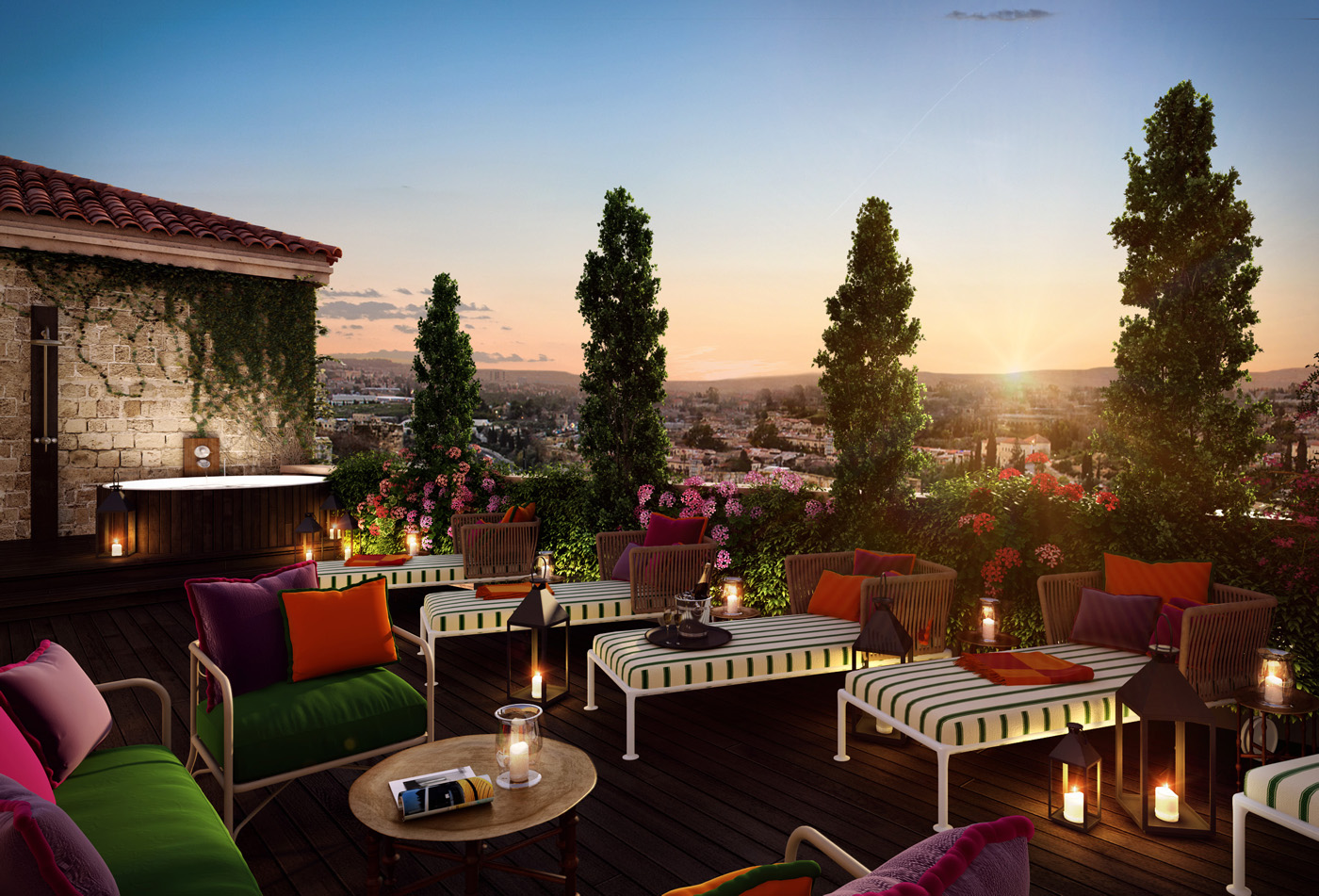
-
 The environmental cost of GLP-1s
The environmental cost of GLP-1sThe explainer Producing the drugs is a dirty process
-
 Greenland’s capital becomes ground zero for the country’s diplomatic straits
Greenland’s capital becomes ground zero for the country’s diplomatic straitsIN THE SPOTLIGHT A flurry of new consular activity in Nuuk shows how important Greenland has become to Europeans’ anxiety about American imperialism
-
 ‘This is something that happens all too often’
‘This is something that happens all too often’Instant Opinion Opinion, comment and editorials of the day
-
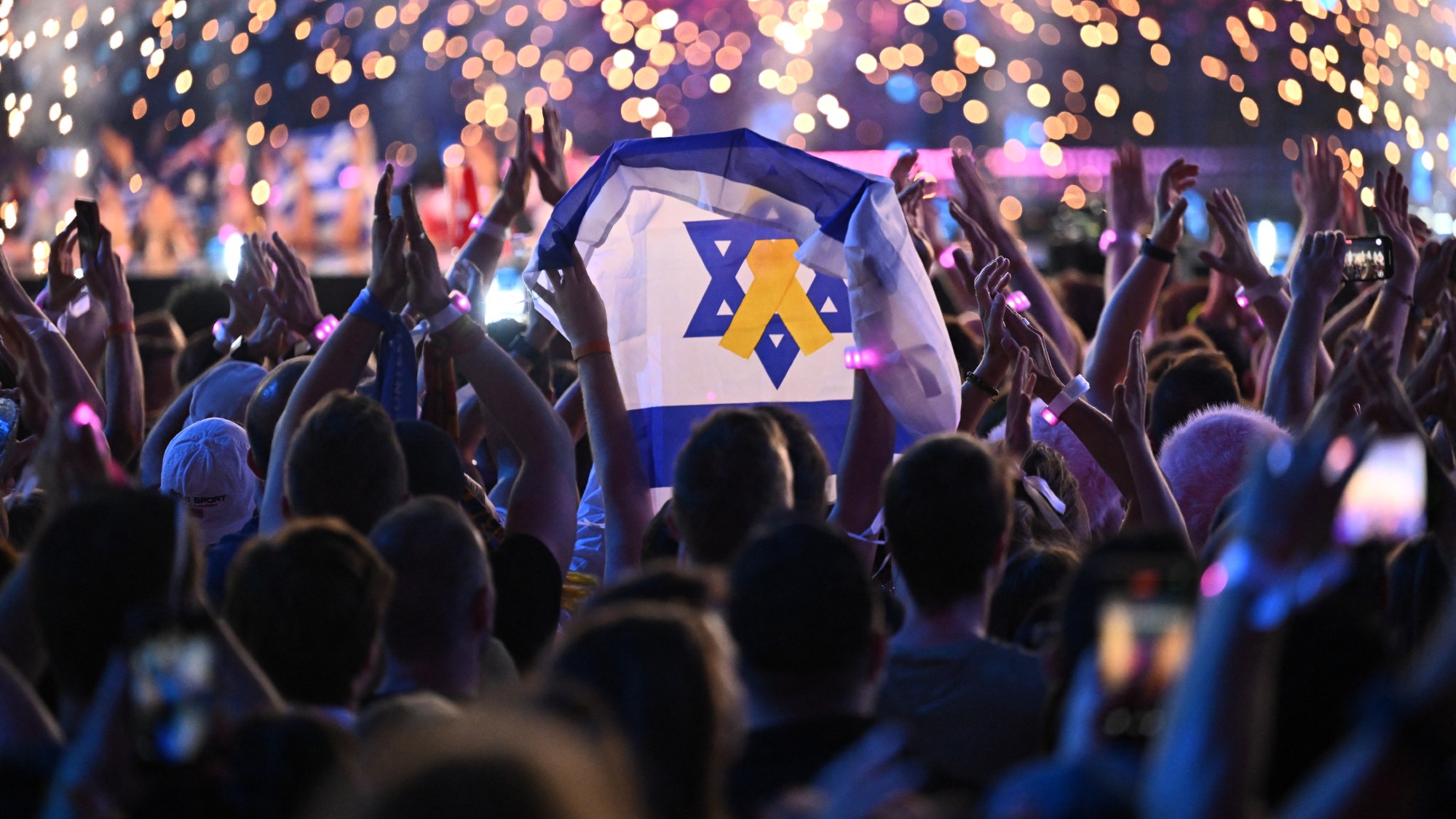 Eurovision faces its Waterloo over Israel boycotts
Eurovision faces its Waterloo over Israel boycottsTalking Point Five major broadcasters have threatened to pull out of next year’s contest over Israel’s participation
-
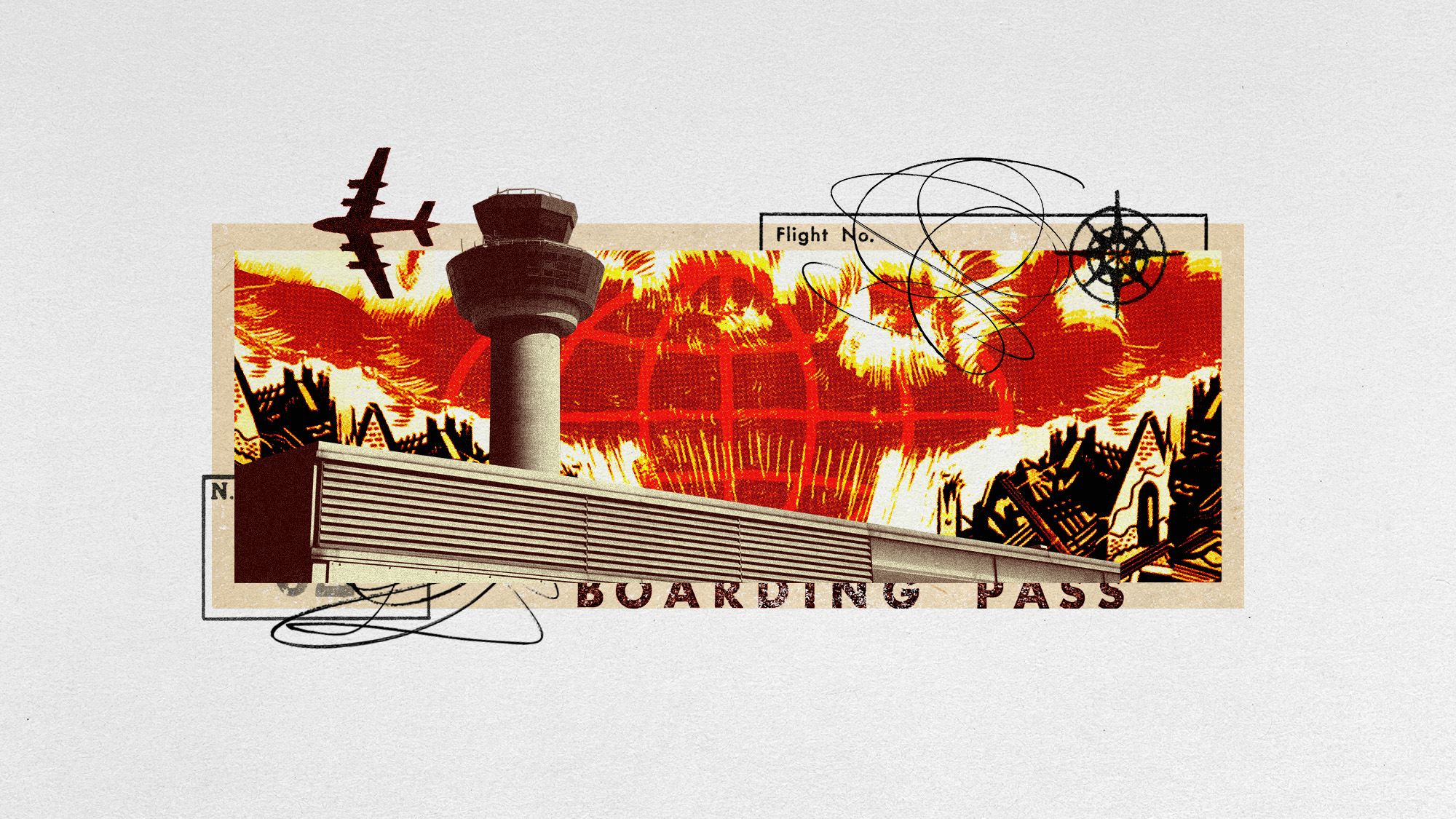 How global conflicts are reshaping flight paths
How global conflicts are reshaping flight pathsUnder the Radar Airlines are having to take longer and convoluted routes to avoid conflict zones
-
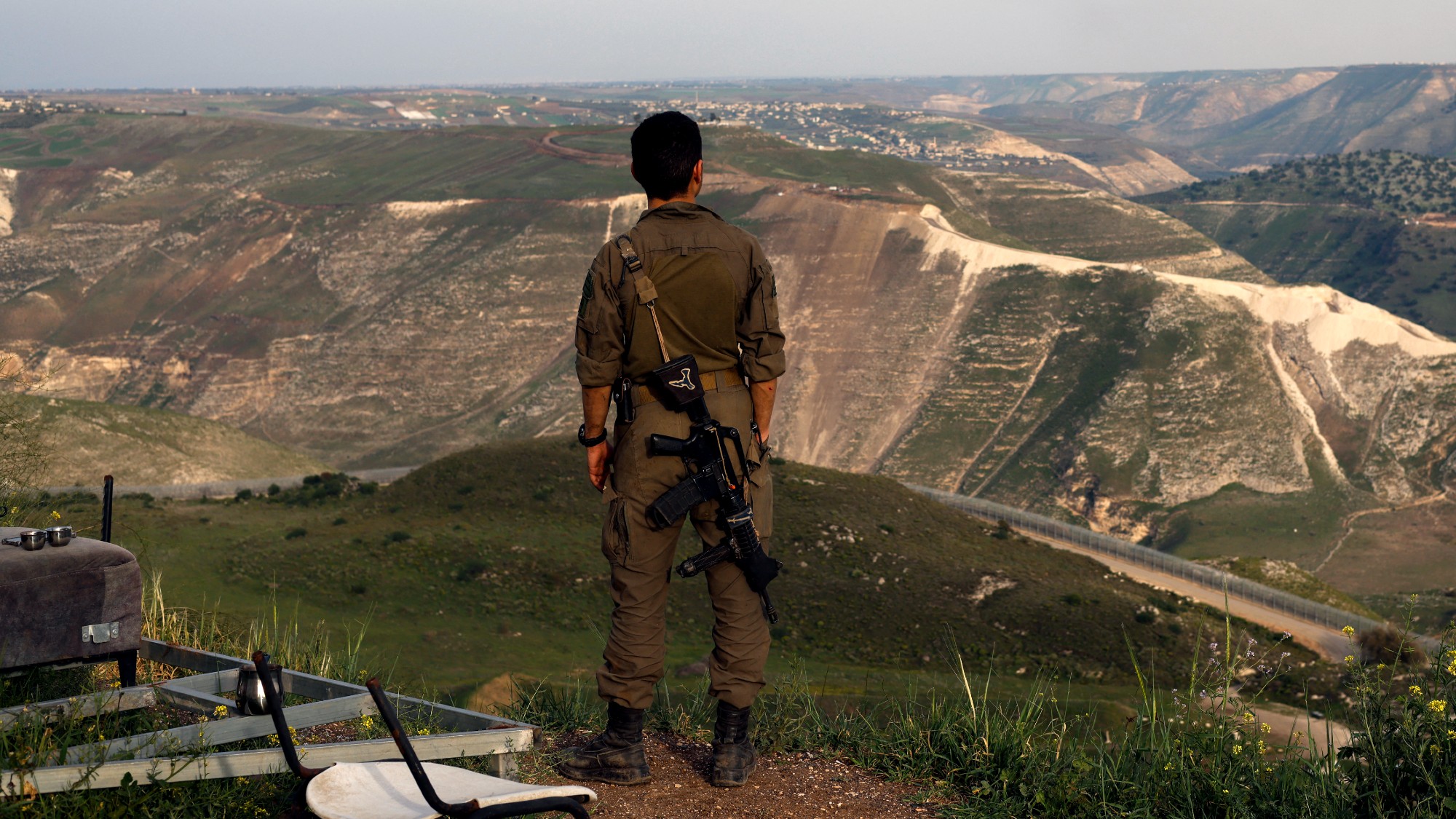 The Israeli army's 'tourist hikes' in occupied Golan Heights
The Israeli army's 'tourist hikes' in occupied Golan HeightsUnder The Radar 'Provocative' twice-daily tours into territory seized from Syria have quickly sold out
-
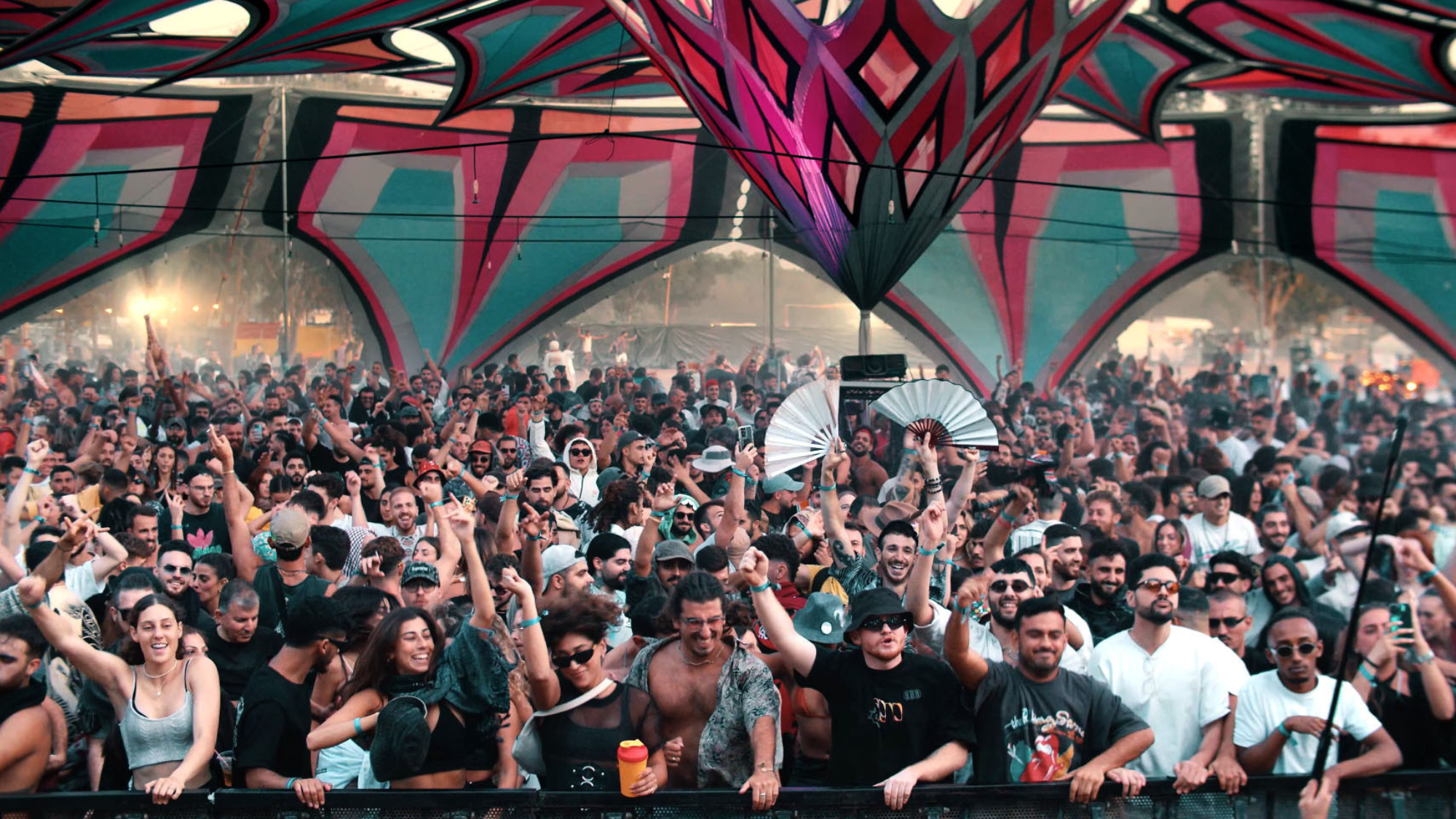 Surviving October 7th: We Will Dance Again – 'blistering' documentary 'unfolds like a disaster movie'
Surviving October 7th: We Will Dance Again – 'blistering' documentary 'unfolds like a disaster movie'The Week Recommends Yariv Mozer's 'visceral' film features mobile phone footage from survivors of Hamas attack
-
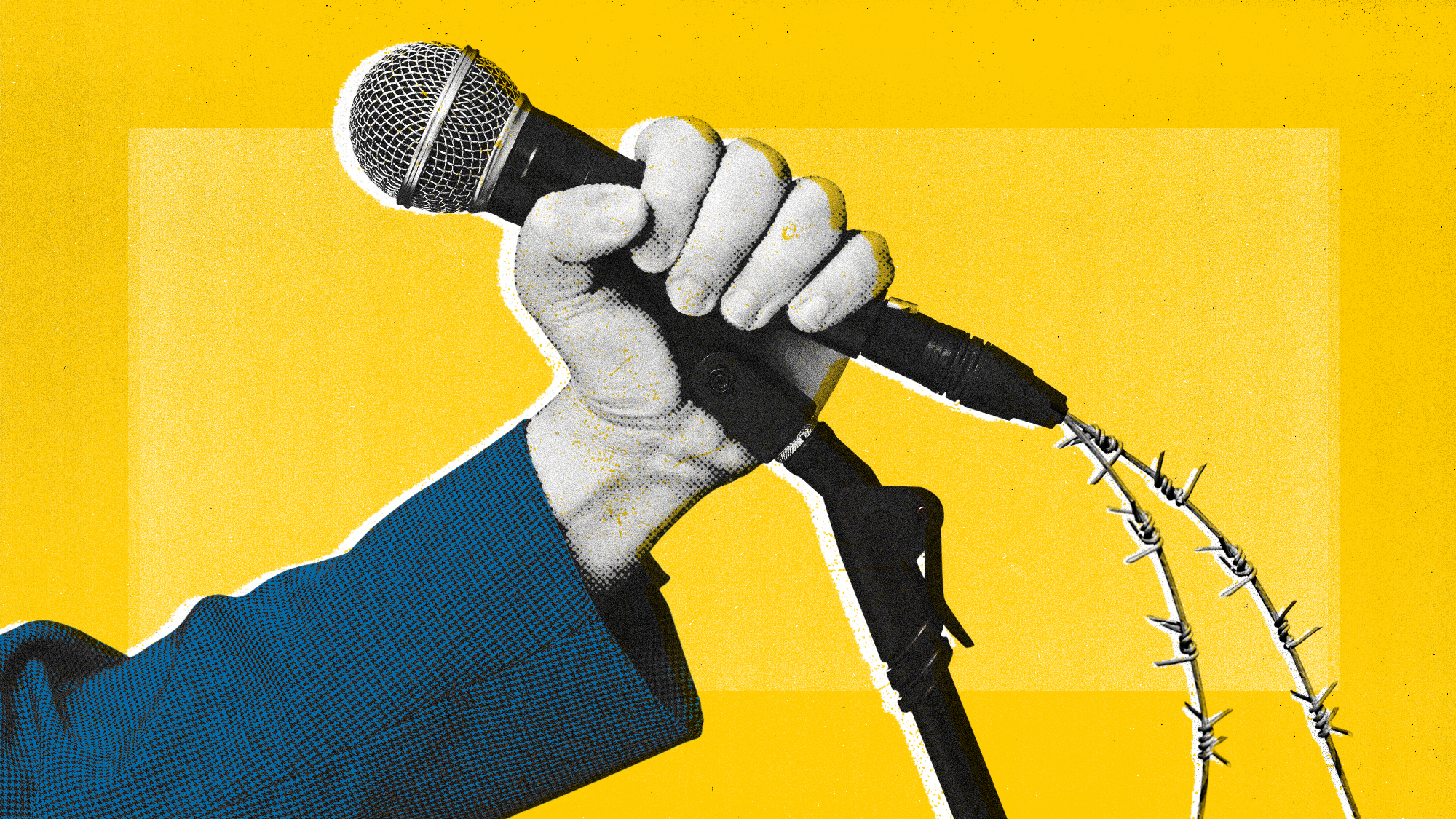 Eurovision 2024: how is politics playing out in Sweden?
Eurovision 2024: how is politics playing out in Sweden?Today's big question World's most popular song contest 'has always been politically charged' but 'this year perhaps more so than ever'
-
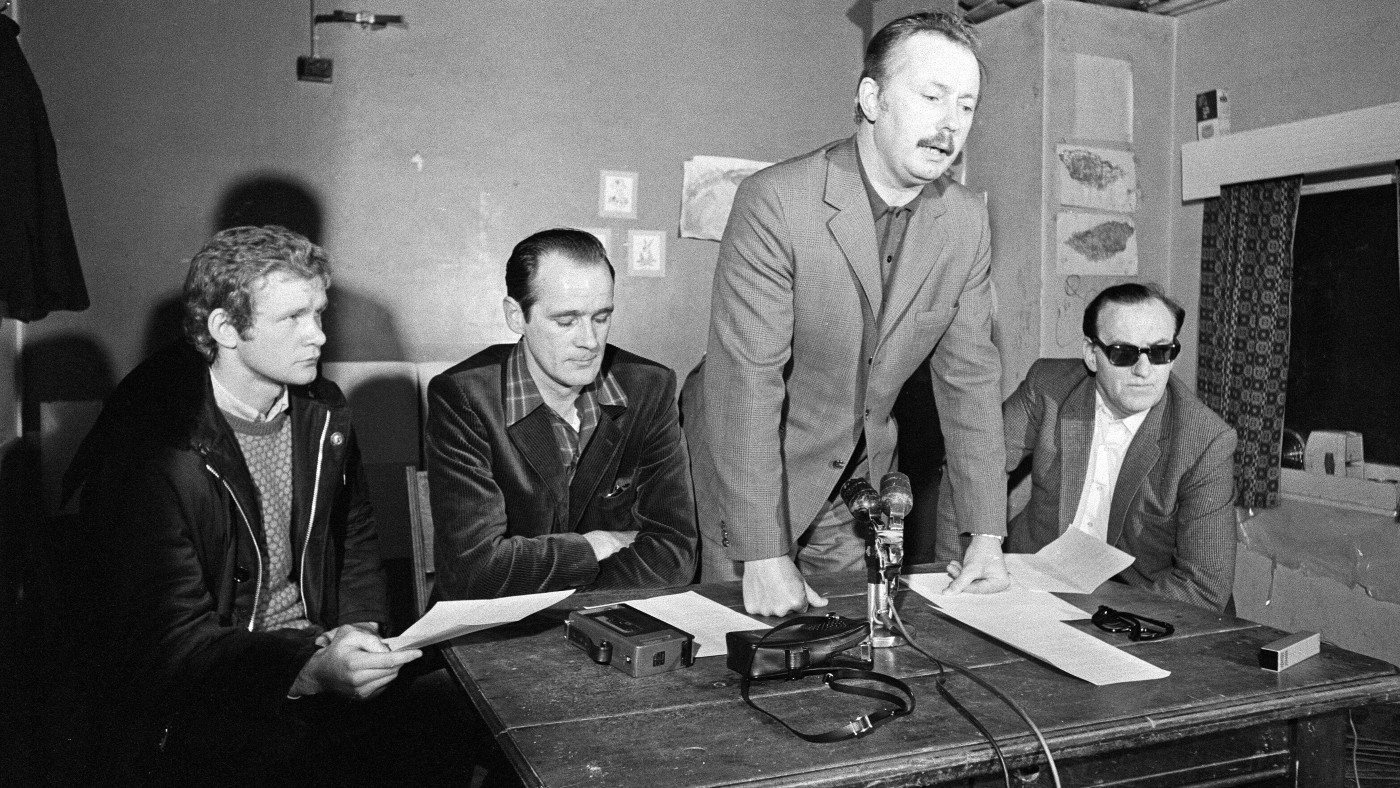 The Secret Army: the IRA propaganda film forgotten for almost 50 years
The Secret Army: the IRA propaganda film forgotten for almost 50 yearsIn the Spotlight 'Chilling' BBC documentary reveals how US TV crew documented the inner workings of paramilitary group in 1970s
-
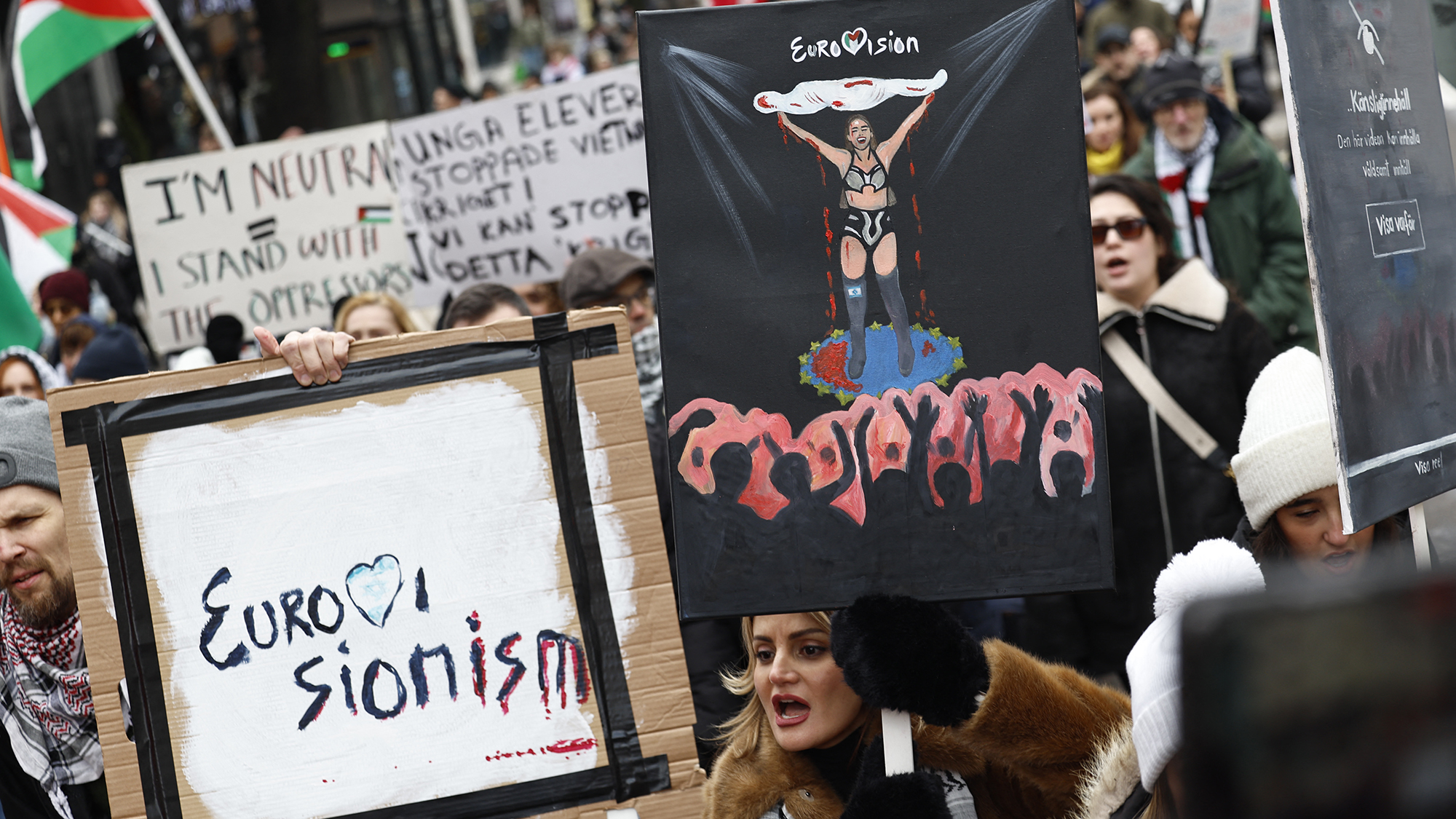 Eurovision stars weigh politics and principles as calls for boycott over Israel grow
Eurovision stars weigh politics and principles as calls for boycott over Israel growUnder The Radar One of the biggest artistic competitions on Earth finds itself in the middle of a widening debate about if — and how — to address the ongoing war in Gaza
-
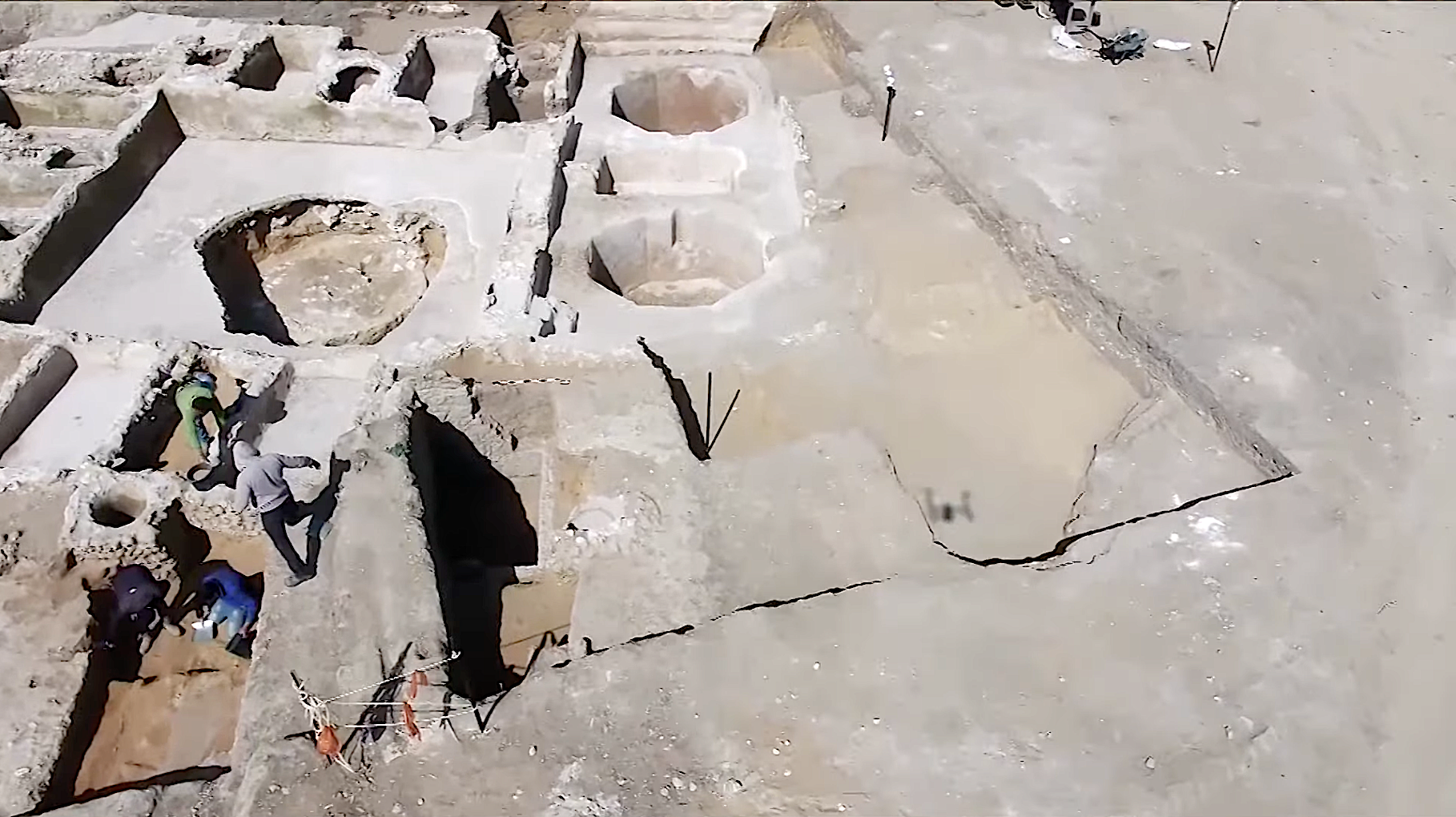 Archaeologists uncover massive, 1,500-year-old winemaking complex in Israel
Archaeologists uncover massive, 1,500-year-old winemaking complex in IsraelSpeed Read